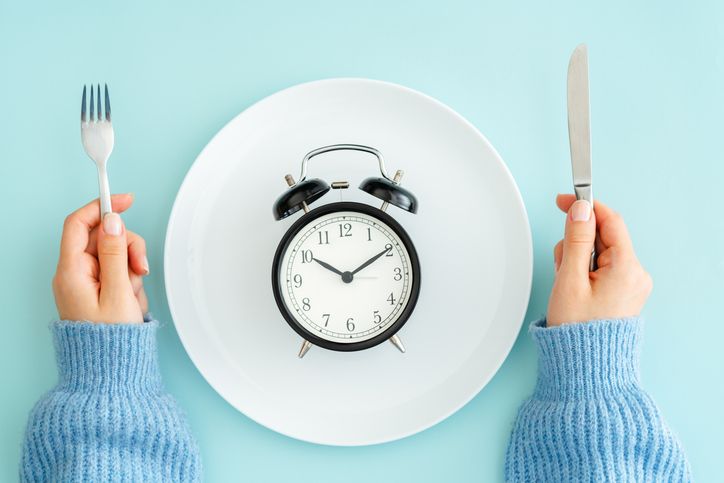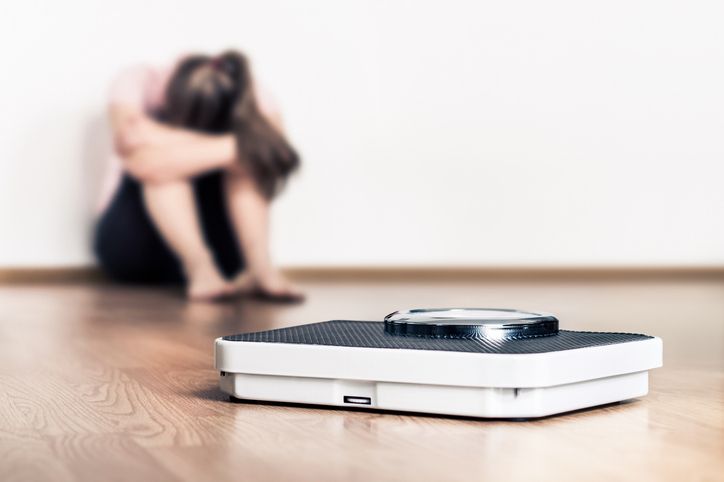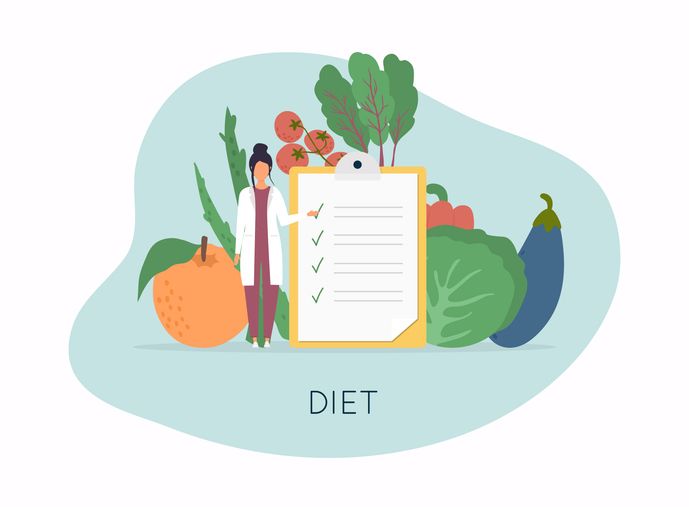
Author: Natalie Ng|Updated: 9 June 2025
You can lose weight naturally by making nine simple lifestyle shifts that don't require strict dieting. Start by eating more slowly and mindfully, giving your brain time to register fullness. Get 7–9 hours of quality sleep, drink plenty of water, and rearrange your kitchen to showcase healthy foods. Use smaller plates, establish regular meal times, move more throughout your day, and track your progress in a food journal. These small changes add up to significant transformations. You don’t need to follow a strict diet to see results. In fact, there are plenty of ways to lose weight just by changing a few habits. Eating differently, moving more, sleeping better—these all play a role. It’s less about following rules and more about creating a routine that feels good and supports your health. If you’ve been wondering how to lose weight without dieting or cutting everything out, these small shifts can make a real difference. Keep going—you’ll see how easy it can be to work them into your day.

Weight Loss Habit 1: Slow Down Your Eating Speed

Eating slowly helps reduce calorie intake
Eating at a slower pace helps you eat fewer calories without needing to change what you eat. When meals are rushed, it’s easy to take in more food than your body actually needs. Over time, this can lead to weight gain, especially if large portion sizes and distracted eating are part of your routine.
Importance of giving your brain time to register fullness
It takes around 20 minutes for your brain to catch up with your stomach’s signals. If you finish your meal too quickly, you may still feel hungry and keep eating past the point of fullness. This leads to extra calories that your body doesn’t need, which affects your body weight and overall health.
Small habits that support healthy weight loss
• Take smaller bites and chew more thoroughly
• Put your fork down between bites
• Spend at least 20 minutes on each meal
• Use smaller utensils or a timer to naturally slow your pace
Eating more slowly can improve your eating habits, support appetite regulating hormones, and help you stay on track with your weight loss goals—without needing to follow strict dieting rules.

Weight Loss Habit 2: Get Quality Sleep Every Night

Sleep affects your hunger and calorie intake
Getting enough sleep helps regulate two key hormones that control your appetite—leptin and ghrelin. When you’re well-rested, these hormones stay balanced, which helps you manage your calorie intake naturally. But when you don’t sleep enough, your body produces more ghrelin (which makes you feel hungry) and less leptin (which helps you feel full). This shift can lead to stronger cravings and larger portions, often without you realizing it.
Importance of regular sleep for weight loss
Lack of sleep can increase your desire for more food—especially snacks high in added sugar and saturated fat. You might notice yourself reaching for larger portions or sugary drinks to stay awake during the day. Over time, this adds extra calories and can make weight gain more likely, even if your diet hasn’t changed.
Sleeping well supports your weight loss journey by helping your body better regulate appetite signals. It also lowers your chances of distracted eating, improves energy levels, and supports your body’s natural rhythm.
Simple habits that support better sleep
• Go to bed and wake up at the same time each day
• Keep your room cool, ideally between 65–68°F
• Make your bedroom dark and quiet using blackout curtains or white noise
• Avoid screens at least one hour before sleep
• Create a relaxing wind-down routine with reading or light stretching
These small lifestyle habits can make it easier to get 7–9 hours of quality sleep every night. Better sleep not only supports weight loss but also improves overall health and mood.
Read More
Book Now to Experience
S6 Body Sculpting Treatment
1 Minute Self-Registration
Date should not be before minimal date

Weight Loss Habit 3: Stay Hydrated Throughout the Day

Drinking water helps you eat fewer calories
Staying hydrated is one of the most overlooked ways to lose weight without dieting. Drinking enough water throughout the day helps you avoid confusing thirst with hunger, which can lead to extra snacking and added calorie intake. It also supports digestion and helps regulate your appetite naturally.
Replacing sugary drinks with water or low-calorie options like sparkling water can cut hundreds of empty calories from your daily intake. This small shift supports a healthy weight and makes it easier to manage your overall calorie balance.
Daily water habits that support weight loss
• Aim for 8–10 glasses of water each day
• Keep a reusable water bottle nearby at home, work, or on the go
• Set reminders on your phone every 2–3 hours to take a few sips
• Choose water over sugary drinks like soda or sweetened coffee
• Start your meals with a glass of water to feel more full and avoid overeating
Replacing sugary drinks reduces extra calories
Sugary drinks like soda, energy drinks, and sweetened coffee add more calories without helping you feel full. These liquid calories can quickly build up and make it harder to maintain a healthy weight. Switching to healthier options—even gradually—can have a lasting impact.
Try sparkling water with lemon or lime, unsweetened iced tea, or diluted fruit juice with fresh fruit slices. Over time, these small swaps help retrain your taste buds while supporting your weight loss goals.
Tracking your water intake keeps you on track
Use any method that fits your lifestyle—water-tracking apps, a journal, or a bottle with measurement markers. What matters is that you track your intake and slowly build a regular routine. You’ll notice more energy, clearer skin, and fewer cravings when you stay hydrated throughout the day.

Weight Loss Habit 4: Practice Mindful Eating at Every Meal

Paying attention helps you eat the right amount
Mindful eating helps you tune in to how hungry or full you actually feel, so you eat the right amount instead of going on autopilot. This habit reduces the chance of overeating and helps you make better food choices—without needing to follow a strict diet or count calories.
When you slow down and focus on your food, you're more likely to stop eating when you’re satisfied, not stuffed. It also helps you avoid distracted eating, like snacking while watching TV or working, which often leads to eating more calories than you need.
Mindful habits that support healthy weight
• Sit down for meals without distractions like phones or TV
• Take smaller bites and chew slowly
• Put your fork down between bites to create natural pauses
• Focus on the texture, color, and flavor of each bite
• Aim to spend at least 20 minutes on your meals
Importance of body awareness during meals
Bringing your full attention to your food helps you recognize when you're truly full, which supports appetite regulating hormones and reduces extra calorie intake. You’ll feel more satisfied with smaller portions, and over time, you'll notice improved digestion, better energy, and fewer cravings.
Mindful eating doesn’t mean being strict but more aware when eating. This habit makes it easier to enjoy more food with fewer calories and is a natural step toward achieving your weight loss goals.
Book Now to Experience
S6 Body Sculpting Treatment
1 Minute Self-Registration
Date should not be before minimal date

Weight Loss Habit 5: Rearrange Your Kitchen to Support Healthy Choices

Your kitchen setup influences your eating habits
The way your kitchen is organized can have a big impact on your daily food choices. When healthier options are easy to see and reach, you're more likely to choose them. On the other hand, when snacks high in saturated fat, added sugar, or empty calories are front and center, it’s harder to avoid them—even if you’re not hungry.
Making small changes to your kitchen layout can help reduce distracted eating, support portion control, and guide you toward more nutrient dense foods without needing to rely on willpower.
Smart kitchen changes that support weight loss
• Keep fresh fruit and low calorie vegetables at eye level in the fridge
• Store canned beans, whole grains, and brown rice within easy reach
• Place treats like chips or sweets in harder-to-reach spots
• Use clear containers for healthy snacks and opaque ones for less healthy foods
• Keep your blender or air fryer visible to encourage cooking at home
• Use smaller plates and bowls to manage portion sizes without tracking calories

Weight Loss Habit 6: Add More Movement to Daily Routines

Everyday movement helps burn more calories
You don’t need a strict workout plan to support weight loss. Adding more physical activity into your regular routine helps you burn more calories throughout the day without setting aside time for formal exercise. Small bursts of movement, done regularly, can improve your overall health and help manage body weight over time.
This type of daily movement also helps preserve muscle mass, which plays a key role in keeping your metabolism steady. More movement means more energy burned, even while doing everyday tasks.
Simple ways to move more during the day
• Take the stairs instead of the elevator
• Walk during phone calls or meetings
• Park farther away from store entrances
• Do gentle stretches or leg lifts while watching TV
• Stand up and move every hour if you have a desk job
• Push your grocery cart instead of using a basket
Even five or ten minutes of extra activity here and there adds up. These regular movements support your weight loss journey by helping you stay active and engaged without needing to follow a rigid workout routine.
Book Now to Experience
S6 Body Sculpting Treatment
1 Minute Self-Registration
Date should not be before minimal date

Weight Loss Habit 7: Use Smaller Plates and Bowls for Every Meal

Smaller dishware helps control portion sizes
Using smaller plates and bowls is a simple change that helps you eat fewer calories without feeling like you're eating less. Your brain uses visual cues to judge how much food is enough. A smaller plate that looks full can feel just as satisfying as a larger plate with more food.
This habit helps you manage portion sizes naturally, making it easier to avoid overeating—even with foods you enjoy. It also reduces the chance of adding extra calories, especially when serving energy-dense meals or snacks.
Practical tips to reduce portion sizes without tracking
• Replace large 12-inch dinner plates with 9-inch plates
• Use dessert plates (6–7 inches) for snacks or small meals
• Switch to bowls that hold 1–1.5 cups to limit oversized servings
• Choose tall, narrow glasses for drinks instead of wide ones
• Serve meals from the stove instead of the table to avoid going back for more food
This change supports long-term weight loss by helping you develop better eating habits without needing to follow a strict weight loss plan. Over time, smaller portions will feel normal, and you’ll still feel satisfied while cutting back on calories.

Weight Loss Habit 8: Plan Regular Meal Times to Avoid Overeating

Regular eating patterns support hunger control
Eating at roughly the same times each day helps regulate your body’s internal hunger cues. When your meals are scattered or unpredictable, it becomes harder to recognize real hunger and fullness, which often leads to overeating or skipped meals followed by larger portions later. Sticking to a regular eating schedule helps manage appetite regulating hormones and makes your energy levels more stable throughout the day.
This habit also helps reduce mindless snacking and keeps you from feeling overly hungry before your next meal, which often leads to eating more calories than your body needs.
How to set up regular meal times that work for you
• Choose three main meals spaced about 4–5 hours apart
• Add a small snack between meals if needed, especially if there’s a long gap
• Use alarms or calendar reminders to stay on track during busy days
• Avoid skipping meals, especially breakfast, as it often leads to more food at your next meal
• Try to eat meals at similar times even on weekends to support your body’s rhythm
This routine helps train your body to expect food at certain times, which can reduce cravings, improve digestion, and help you feel more in control of your daily intake.
Book Now to Experience
S6 Body Sculpting Treatment
1 Minute Self-Registration
Date should not be before minimal date

Weight Loss Habit 9: Keep a Food and Mood Journal to Spot Patterns

Journaling helps you understand your eating habits
Tracking what you eat—and how you feel when you eat—can reveal patterns that influence your weight. A food and mood journal helps you see more than just meals and snacks. It shows you why you eat, how much you eat, and what triggers certain behaviors like overeating or emotional eating.
This habit helps you stay aware of portion sizes, eating times, and emotional states tied to food. That awareness makes it easier to change habits that might be holding you back from your weight loss goals.
What to include in your daily food and mood journal
• Meals and snacks, with rough portion sizes
• Times of each meal or snack
• Hunger level before and after eating (rate it on a scale from 1–10)
• Your mood during meals (e.g. stressed, bored, calm, happy)
• Notes on cravings, energy levels, or physical symptoms like bloating
You don’t need to track every detail forever—just long enough to spot habits and triggers. Many people discover they eat more when they’re bored or tired, or that certain times of day lead to larger portions or sugary snacks. Once you notice the pattern, it’s easier to adjust.
This small, daily habit supports weight loss by giving you insight into your relationship with food, helping you take small but powerful steps toward healthier eating.

Why Diets Often Don’t Work for Long-Term Weight Loss

Most restrictive diets lead to weight regain
Many people try to lose weight by following strict diet plans that cut out entire food groups or drastically reduce calorie intake. While these methods might show short-term results, they often don’t last. Overly strict diets can trigger hunger, mood swings, and intense cravings—especially for high-fat or high-sugar foods. Once the diet ends, many people find themselves eating more food than before, which can lead to weight gain.
This cycle makes it harder to keep the weight off and can affect your relationship with food. That’s why sustainable changes—like eating mindfully, improving sleep, increasing physical activity, and tracking progress—are more effective for long-term weight loss.
Sustainable habits support a healthy weight without strict rules
Instead of focusing on calorie restriction, it helps to shift your attention toward practical lifestyle habits. These small changes don’t just help you lose weight without dieting—they also reduce your risk of heart disease, support gut bacteria, and improve your overall health.
Some examples of long-term habits include:
• Choosing low calorie vegetables and whole grains like brown rice or whole wheat bread
• Replacing sugary drinks with water or sparkling water
• Eating more fruits, healthy fats like olive oil or oily fish, and low fat dairy products
• Avoiding liquid calories, added sugar, and trans fats from processed snacks
These strategies help reduce extra calories and support nutrient density without making you feel deprived.

Boost Your Weight Loss Results Without Dieting: How S6 Body Sculpting Can Help
Losing weight through lifestyle habits—like eating more mindfully, drinking more water, and getting better sleep—can make a real difference over time. But even with steady progress, certain areas of the body tend to hold onto fat more than others. That’s where targeted support can make a big impact.
S6 Body Sculpting Treatment is a non-invasive, non-surgical option designed to support fat loss in stubborn areas—without the need for dieting or intense workouts. For anyone exploring how to lose weight without dieting, this treatment offers a practical, comfortable way to enhance your results and target specific body zones more effectively.
How S6 Body Sculpting Works
The treatment uses a patented low-energy bio-laser to reach deep into the fat layers under the skin. Once applied to the treatment area, the laser energy triggers fat cells to release stored fatty acids. This process breaks down the fat without damaging the surrounding tissue.
After the laser phase, vacuum suction and massage techniques are used to support lymphatic drainage, speeding up the body’s natural fat removal process. At the same time, the laser stimulates collagen production, which helps tighten and firm the skin. A typical course includes 10–12 sessions, spaced about a month apart.
Advantages of S6 Body Sculpting Treatment
• Targets stubborn fat areas like the belly, thighs, arms, waist, back, and calves
• Non-invasive—no surgery, no injections, no medications
• No downtime—you can return to your normal routine right after treatment
• Boosts metabolism with vacuum-assisted massage
• Improves skin texture by stimulating collagen for a firmer appearance
• Supports your weight loss plan by helping shape and contour the body where exercise and eating habits may fall short
For people who want to lose weight without dieting and focus on fat reduction in specific areas, S6 Body Sculpting offers a safe and supportive solution. It works well alongside healthy lifestyle habits and can help you see faster, more visible results—especially when you're already putting effort into daily movement, sleep, and hydration.
Ready to take the next step in your weight loss journey? Book your S6 Body Sculpting session today and start seeing the change.
New Beauty's S6 Body Sculpting TreatmentBook Now to Experience
S6 Body Sculpting Treatment
1 Minute Self-Registration
Date should not be before minimal date
FAQ
1. Can I lose weight without counting calories or following a specific meal plan?
Yes, you can lose weight without counting calories or following a strict meal plan by focusing on your daily habits. Paying attention to portion sizes, eating more low calorie vegetables, cutting out sugary drinks, and staying physically active are all effective ways to reduce your calorie intake naturally. Choosing whole foods, healthy fats like olive oil or oily fish, and increasing your fiber intake can also support a healthy weight without the need for a detailed weight loss plan.
2. Why am I not losing weight even though I don’t eat much?
If you're eating less but not losing weight, factors like sleep deprivation, low muscle mass, lack of physical activity, or hormone imbalances may be affecting your progress. Your metabolism can slow down if your calorie intake is too low for too long. Also, eating habits like distracted eating or skipping meals can lead to eating more food later without realizing it. Tracking your daily intake and sleep patterns may help identify hidden causes.
3. What are the best drinks for weight loss without dieting?
Drinking water regularly is one of the best ways to support weight loss. Replacing sugary drinks with plain water, sparkling water, or unsweetened teas helps cut extra calories and prevent weight gain. Drinks like black coffee (without added sugar or cream), herbal teas, or diluted fresh fruit juice can also be helpful. Avoid beverages with refined sugars, trans fats, or high saturated fat content, as they offer little nutrient density and add empty calories.
4. How important is gut health in losing weight naturally?
Gut bacteria play a key role in how your body processes food, manages fat storage, and regulates appetite. A diet rich in fiber, fresh fruit, whole grains, and low fat dairy products helps maintain a healthy gut. Including fermented foods or probiotics may also support digestion and nutrient absorption. A well-balanced gut environment may improve how your body uses calories and help with long-term weight loss without extreme dieting.
5. Can I maintain my body weight without exercise if I eat well?
While it’s possible to maintain weight through diet alone, regular physical activity offers additional benefits that support weight loss goals. Moving more each day helps increase your metabolism, preserve muscle mass, and reduce extra calories. Even light movement, like walking, stretching, or doing chores, contributes to your calorie burn. Combining healthy eating habits with daily activity gives you the best chance of maintaining your ideal body weight naturally.
Recommended Articles
COPYRIGHT© NEW BEAUTY MANAGEMENT LIMITED 2026. ALL RIGHT RESERVED.




